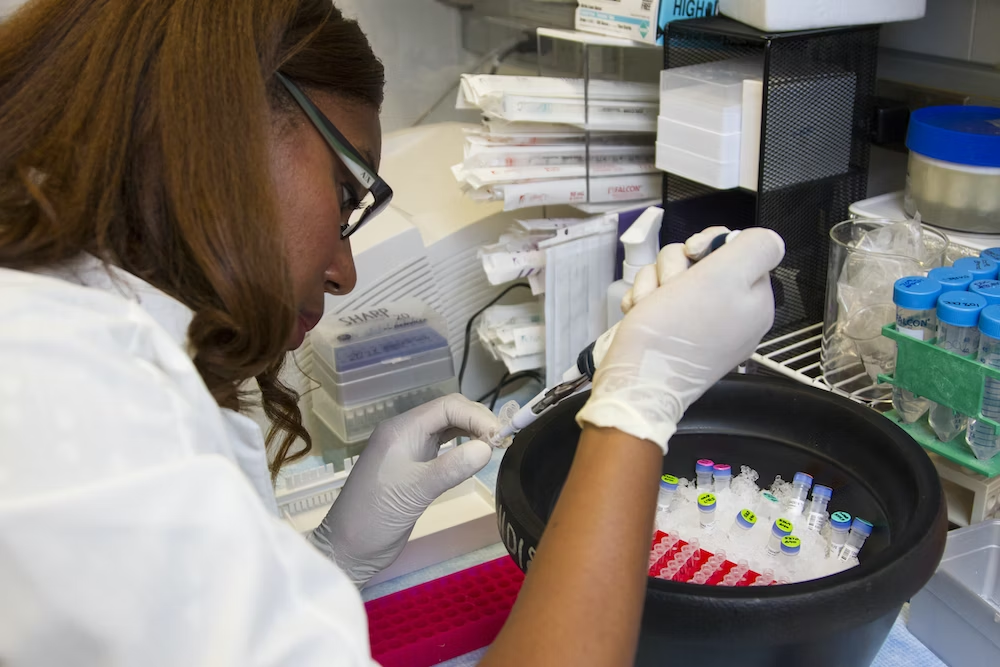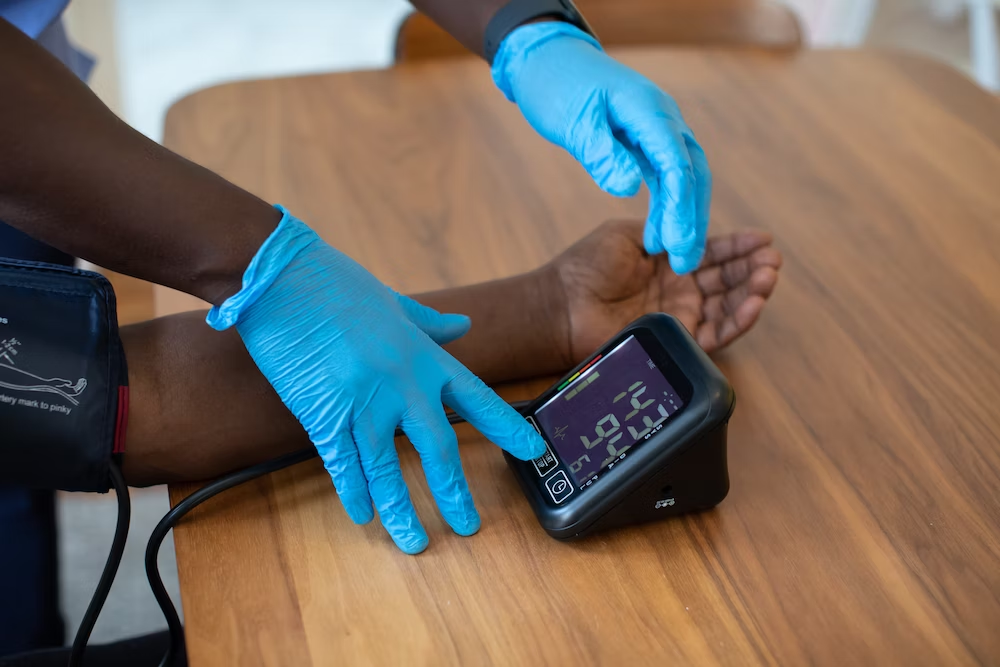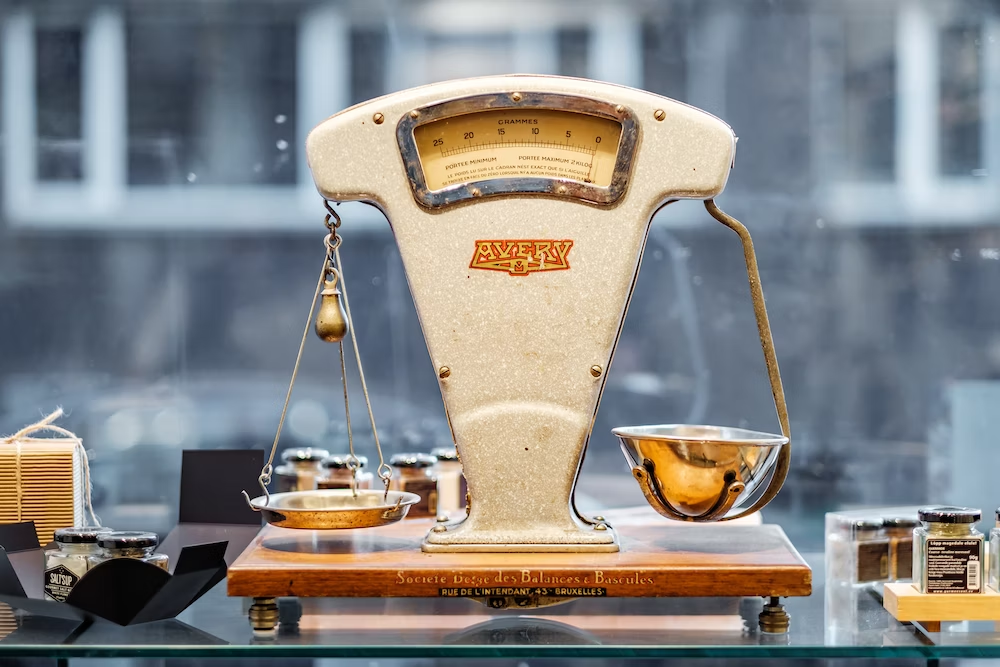- Privacy Policy

Home » What is a Hypothesis – Types, Examples and Writing Guide

What is a Hypothesis – Types, Examples and Writing Guide
Table of Contents

Definition:
Hypothesis is an educated guess or proposed explanation for a phenomenon, based on some initial observations or data. It is a tentative statement that can be tested and potentially proven or disproven through further investigation and experimentation.
Hypothesis is often used in scientific research to guide the design of experiments and the collection and analysis of data. It is an essential element of the scientific method, as it allows researchers to make predictions about the outcome of their experiments and to test those predictions to determine their accuracy.
Types of Hypothesis
Types of Hypothesis are as follows:
Research Hypothesis
A research hypothesis is a statement that predicts a relationship between variables. It is usually formulated as a specific statement that can be tested through research, and it is often used in scientific research to guide the design of experiments.
Null Hypothesis
The null hypothesis is a statement that assumes there is no significant difference or relationship between variables. It is often used as a starting point for testing the research hypothesis, and if the results of the study reject the null hypothesis, it suggests that there is a significant difference or relationship between variables.
Alternative Hypothesis
An alternative hypothesis is a statement that assumes there is a significant difference or relationship between variables. It is often used as an alternative to the null hypothesis and is tested against the null hypothesis to determine which statement is more accurate.
Directional Hypothesis
A directional hypothesis is a statement that predicts the direction of the relationship between variables. For example, a researcher might predict that increasing the amount of exercise will result in a decrease in body weight.
Non-directional Hypothesis
A non-directional hypothesis is a statement that predicts the relationship between variables but does not specify the direction. For example, a researcher might predict that there is a relationship between the amount of exercise and body weight, but they do not specify whether increasing or decreasing exercise will affect body weight.
Statistical Hypothesis
A statistical hypothesis is a statement that assumes a particular statistical model or distribution for the data. It is often used in statistical analysis to test the significance of a particular result.
Composite Hypothesis
A composite hypothesis is a statement that assumes more than one condition or outcome. It can be divided into several sub-hypotheses, each of which represents a different possible outcome.
Empirical Hypothesis
An empirical hypothesis is a statement that is based on observed phenomena or data. It is often used in scientific research to develop theories or models that explain the observed phenomena.
Simple Hypothesis
A simple hypothesis is a statement that assumes only one outcome or condition. It is often used in scientific research to test a single variable or factor.
Complex Hypothesis
A complex hypothesis is a statement that assumes multiple outcomes or conditions. It is often used in scientific research to test the effects of multiple variables or factors on a particular outcome.
Applications of Hypothesis
Hypotheses are used in various fields to guide research and make predictions about the outcomes of experiments or observations. Here are some examples of how hypotheses are applied in different fields:
- Science : In scientific research, hypotheses are used to test the validity of theories and models that explain natural phenomena. For example, a hypothesis might be formulated to test the effects of a particular variable on a natural system, such as the effects of climate change on an ecosystem.
- Medicine : In medical research, hypotheses are used to test the effectiveness of treatments and therapies for specific conditions. For example, a hypothesis might be formulated to test the effects of a new drug on a particular disease.
- Psychology : In psychology, hypotheses are used to test theories and models of human behavior and cognition. For example, a hypothesis might be formulated to test the effects of a particular stimulus on the brain or behavior.
- Sociology : In sociology, hypotheses are used to test theories and models of social phenomena, such as the effects of social structures or institutions on human behavior. For example, a hypothesis might be formulated to test the effects of income inequality on crime rates.
- Business : In business research, hypotheses are used to test the validity of theories and models that explain business phenomena, such as consumer behavior or market trends. For example, a hypothesis might be formulated to test the effects of a new marketing campaign on consumer buying behavior.
- Engineering : In engineering, hypotheses are used to test the effectiveness of new technologies or designs. For example, a hypothesis might be formulated to test the efficiency of a new solar panel design.
How to write a Hypothesis
Here are the steps to follow when writing a hypothesis:
Identify the Research Question
The first step is to identify the research question that you want to answer through your study. This question should be clear, specific, and focused. It should be something that can be investigated empirically and that has some relevance or significance in the field.
Conduct a Literature Review
Before writing your hypothesis, it’s essential to conduct a thorough literature review to understand what is already known about the topic. This will help you to identify the research gap and formulate a hypothesis that builds on existing knowledge.
Determine the Variables
The next step is to identify the variables involved in the research question. A variable is any characteristic or factor that can vary or change. There are two types of variables: independent and dependent. The independent variable is the one that is manipulated or changed by the researcher, while the dependent variable is the one that is measured or observed as a result of the independent variable.
Formulate the Hypothesis
Based on the research question and the variables involved, you can now formulate your hypothesis. A hypothesis should be a clear and concise statement that predicts the relationship between the variables. It should be testable through empirical research and based on existing theory or evidence.
Write the Null Hypothesis
The null hypothesis is the opposite of the alternative hypothesis, which is the hypothesis that you are testing. The null hypothesis states that there is no significant difference or relationship between the variables. It is important to write the null hypothesis because it allows you to compare your results with what would be expected by chance.
Refine the Hypothesis
After formulating the hypothesis, it’s important to refine it and make it more precise. This may involve clarifying the variables, specifying the direction of the relationship, or making the hypothesis more testable.
Examples of Hypothesis
Here are a few examples of hypotheses in different fields:
- Psychology : “Increased exposure to violent video games leads to increased aggressive behavior in adolescents.”
- Biology : “Higher levels of carbon dioxide in the atmosphere will lead to increased plant growth.”
- Sociology : “Individuals who grow up in households with higher socioeconomic status will have higher levels of education and income as adults.”
- Education : “Implementing a new teaching method will result in higher student achievement scores.”
- Marketing : “Customers who receive a personalized email will be more likely to make a purchase than those who receive a generic email.”
- Physics : “An increase in temperature will cause an increase in the volume of a gas, assuming all other variables remain constant.”
- Medicine : “Consuming a diet high in saturated fats will increase the risk of developing heart disease.”
Purpose of Hypothesis
The purpose of a hypothesis is to provide a testable explanation for an observed phenomenon or a prediction of a future outcome based on existing knowledge or theories. A hypothesis is an essential part of the scientific method and helps to guide the research process by providing a clear focus for investigation. It enables scientists to design experiments or studies to gather evidence and data that can support or refute the proposed explanation or prediction.
The formulation of a hypothesis is based on existing knowledge, observations, and theories, and it should be specific, testable, and falsifiable. A specific hypothesis helps to define the research question, which is important in the research process as it guides the selection of an appropriate research design and methodology. Testability of the hypothesis means that it can be proven or disproven through empirical data collection and analysis. Falsifiability means that the hypothesis should be formulated in such a way that it can be proven wrong if it is incorrect.
In addition to guiding the research process, the testing of hypotheses can lead to new discoveries and advancements in scientific knowledge. When a hypothesis is supported by the data, it can be used to develop new theories or models to explain the observed phenomenon. When a hypothesis is not supported by the data, it can help to refine existing theories or prompt the development of new hypotheses to explain the phenomenon.
When to use Hypothesis
Here are some common situations in which hypotheses are used:
- In scientific research , hypotheses are used to guide the design of experiments and to help researchers make predictions about the outcomes of those experiments.
- In social science research , hypotheses are used to test theories about human behavior, social relationships, and other phenomena.
- I n business , hypotheses can be used to guide decisions about marketing, product development, and other areas. For example, a hypothesis might be that a new product will sell well in a particular market, and this hypothesis can be tested through market research.
Characteristics of Hypothesis
Here are some common characteristics of a hypothesis:
- Testable : A hypothesis must be able to be tested through observation or experimentation. This means that it must be possible to collect data that will either support or refute the hypothesis.
- Falsifiable : A hypothesis must be able to be proven false if it is not supported by the data. If a hypothesis cannot be falsified, then it is not a scientific hypothesis.
- Clear and concise : A hypothesis should be stated in a clear and concise manner so that it can be easily understood and tested.
- Based on existing knowledge : A hypothesis should be based on existing knowledge and research in the field. It should not be based on personal beliefs or opinions.
- Specific : A hypothesis should be specific in terms of the variables being tested and the predicted outcome. This will help to ensure that the research is focused and well-designed.
- Tentative: A hypothesis is a tentative statement or assumption that requires further testing and evidence to be confirmed or refuted. It is not a final conclusion or assertion.
- Relevant : A hypothesis should be relevant to the research question or problem being studied. It should address a gap in knowledge or provide a new perspective on the issue.
Advantages of Hypothesis
Hypotheses have several advantages in scientific research and experimentation:
- Guides research: A hypothesis provides a clear and specific direction for research. It helps to focus the research question, select appropriate methods and variables, and interpret the results.
- Predictive powe r: A hypothesis makes predictions about the outcome of research, which can be tested through experimentation. This allows researchers to evaluate the validity of the hypothesis and make new discoveries.
- Facilitates communication: A hypothesis provides a common language and framework for scientists to communicate with one another about their research. This helps to facilitate the exchange of ideas and promotes collaboration.
- Efficient use of resources: A hypothesis helps researchers to use their time, resources, and funding efficiently by directing them towards specific research questions and methods that are most likely to yield results.
- Provides a basis for further research: A hypothesis that is supported by data provides a basis for further research and exploration. It can lead to new hypotheses, theories, and discoveries.
- Increases objectivity: A hypothesis can help to increase objectivity in research by providing a clear and specific framework for testing and interpreting results. This can reduce bias and increase the reliability of research findings.
Limitations of Hypothesis
Some Limitations of the Hypothesis are as follows:
- Limited to observable phenomena: Hypotheses are limited to observable phenomena and cannot account for unobservable or intangible factors. This means that some research questions may not be amenable to hypothesis testing.
- May be inaccurate or incomplete: Hypotheses are based on existing knowledge and research, which may be incomplete or inaccurate. This can lead to flawed hypotheses and erroneous conclusions.
- May be biased: Hypotheses may be biased by the researcher’s own beliefs, values, or assumptions. This can lead to selective interpretation of data and a lack of objectivity in research.
- Cannot prove causation: A hypothesis can only show a correlation between variables, but it cannot prove causation. This requires further experimentation and analysis.
- Limited to specific contexts: Hypotheses are limited to specific contexts and may not be generalizable to other situations or populations. This means that results may not be applicable in other contexts or may require further testing.
- May be affected by chance : Hypotheses may be affected by chance or random variation, which can obscure or distort the true relationship between variables.
About the author
Muhammad Hassan
Researcher, Academic Writer, Web developer
You may also like

Problem Statement – Writing Guide, Examples and...

Ethical Considerations – Types, Examples and...

Table of Contents – Types, Formats, Examples

Institutional Review Board – Application Sample...

Research Project – Definition, Writing Guide and...

Figures in Research Paper – Examples and Guide
- Research Process
- Manuscript Preparation
- Manuscript Review
- Publication Process
- Publication Recognition
- Language Editing Services
- Translation Services

Step-by-Step Guide: How to Craft a Strong Research Hypothesis
- 4 minute read
- 406.7K views
Table of Contents
A research hypothesis is a concise statement about the expected result of an experiment or project. In many ways, a research hypothesis represents the starting point for a scientific endeavor, as it establishes a tentative assumption that is eventually substantiated or falsified, ultimately improving our certainty about the subject investigated.
To help you with this and ease the process, in this article, we discuss the purpose of research hypotheses and list the most essential qualities of a compelling hypothesis. Let’s find out!
How to Craft a Research Hypothesis
Crafting a research hypothesis begins with a comprehensive literature review to identify a knowledge gap in your field. Once you find a question or problem, come up with a possible answer or explanation, which becomes your hypothesis. Now think about the specific methods of experimentation that can prove or disprove the hypothesis, which ultimately lead to the results of the study.
Enlisted below are some standard formats in which you can formulate a hypothesis¹ :
- A hypothesis can use the if/then format when it seeks to explore the correlation between two variables in a study primarily.
Example: If administered drug X, then patients will experience reduced fatigue from cancer treatment.
- A hypothesis can adopt when X/then Y format when it primarily aims to expose a connection between two variables
Example: When workers spend a significant portion of their waking hours in sedentary work , then they experience a greater frequency of digestive problems.
- A hypothesis can also take the form of a direct statement.
Example: Drug X and drug Y reduce the risk of cognitive decline through the same chemical pathways
What are the Features of an Effective Hypothesis?
Hypotheses in research need to satisfy specific criteria to be considered scientifically rigorous. Here are the most notable qualities of a strong hypothesis:
- Testability: Ensure the hypothesis allows you to work towards observable and testable results.
- Brevity and objectivity: Present your hypothesis as a brief statement and avoid wordiness.
- Clarity and Relevance: The hypothesis should reflect a clear idea of what we know and what we expect to find out about a phenomenon and address the significant knowledge gap relevant to a field of study.
Understanding Null and Alternative Hypotheses in Research
There are two types of hypotheses used commonly in research that aid statistical analyses. These are known as the null hypothesis and the alternative hypothesis . A null hypothesis is a statement assumed to be factual in the initial phase of the study.
For example, if a researcher is testing the efficacy of a new drug, then the null hypothesis will posit that the drug has no benefits compared to an inactive control or placebo . Suppose the data collected through a drug trial leads a researcher to reject the null hypothesis. In that case, it is considered to substantiate the alternative hypothesis in the above example, that the new drug provides benefits compared to the placebo.
Let’s take a closer look at the null hypothesis and alternative hypothesis with two more examples:
Null Hypothesis:
The rate of decline in the number of species in habitat X in the last year is the same as in the last 100 years when controlled for all factors except the recent wildfires.
In the next experiment, the researcher will experimentally reject this null hypothesis in order to confirm the following alternative hypothesis :
The rate of decline in the number of species in habitat X in the last year is different from the rate of decline in the last 100 years when controlled for all factors other than the recent wildfires.
In the pair of null and alternative hypotheses stated above, a statistical comparison of the rate of species decline over a century and the preceding year will help the research experimentally test the null hypothesis, helping to draw scientifically valid conclusions about two factors—wildfires and species decline.
We also recommend that researchers pay attention to contextual echoes and connections when writing research hypotheses. Research hypotheses are often closely linked to the introduction ² , such as the context of the study, and can similarly influence the reader’s judgment of the relevance and validity of the research hypothesis.
Seasoned experts, such as professionals at Elsevier Language Services, guide authors on how to best embed a hypothesis within an article so that it communicates relevance and credibility. Contact us if you want help in ensuring readers find your hypothesis robust and unbiased.
References
- Hypotheses – The University Writing Center. (n.d.). https://writingcenter.tamu.edu/writing-speaking-guides/hypotheses
- Shaping the research question and hypothesis. (n.d.). Students. https://students.unimelb.edu.au/academic-skills/graduate-research-services/writing-thesis-sections-part-2/shaping-the-research-question-and-hypothesis

Systematic Literature Review or Literature Review?

How to Write an Effective Problem Statement for Your Research Paper
You may also like.

Submission 101: What format should be used for academic papers?

Page-Turner Articles are More Than Just Good Arguments: Be Mindful of Tone and Structure!

A Must-see for Researchers! How to Ensure Inclusivity in Your Scientific Writing

Make Hook, Line, and Sinker: The Art of Crafting Engaging Introductions

Can Describing Study Limitations Improve the Quality of Your Paper?

A Guide to Crafting Shorter, Impactful Sentences in Academic Writing

6 Steps to Write an Excellent Discussion in Your Manuscript

How to Write Clear and Crisp Civil Engineering Papers? Here are 5 Key Tips to Consider
Input your search keywords and press Enter.

How to Write a Hypothesis: A Step-by-Step Guide

Introduction
An overview of the research hypothesis, different types of hypotheses, variables in a hypothesis, how to formulate an effective research hypothesis, designing a study around your hypothesis.
The scientific method can derive and test predictions as hypotheses. Empirical research can then provide support (or lack thereof) for the hypotheses. Even failure to find support for a hypothesis still represents a valuable contribution to scientific knowledge. Let's look more closely at the idea of the hypothesis and the role it plays in research.

As much as the term exists in everyday language, there is a detailed development that informs the word "hypothesis" when applied to research. A good research hypothesis is informed by prior research and guides research design and data analysis , so it is important to understand how a hypothesis is defined and understood by researchers.
What is the simple definition of a hypothesis?
A hypothesis is a testable prediction about an outcome between two or more variables . It functions as a navigational tool in the research process, directing what you aim to predict and how.

What is the hypothesis for in research?
In research, a hypothesis serves as the cornerstone for your empirical study. It not only lays out what you aim to investigate but also provides a structured approach for your data collection and analysis.
Essentially, it bridges the gap between the theoretical and the empirical, guiding your investigation throughout its course.

What is an example of a hypothesis?
If you are studying the relationship between physical exercise and mental health, a suitable hypothesis could be: "Regular physical exercise leads to improved mental well-being among adults."
This statement constitutes a specific and testable hypothesis that directly relates to the variables you are investigating.
What makes a good hypothesis?
A good hypothesis possesses several key characteristics. Firstly, it must be testable, allowing you to analyze data through empirical means, such as observation or experimentation, to assess if there is significant support for the hypothesis. Secondly, a hypothesis should be specific and unambiguous, giving a clear understanding of the expected relationship between variables. Lastly, it should be grounded in existing research or theoretical frameworks , ensuring its relevance and applicability.
Understanding the types of hypotheses can greatly enhance how you construct and work with hypotheses. While all hypotheses serve the essential function of guiding your study, there are varying purposes among the types of hypotheses. In addition, all hypotheses stand in contrast to the null hypothesis, or the assumption that there is no significant relationship between the variables .
Here, we explore various kinds of hypotheses to provide you with the tools needed to craft effective hypotheses for your specific research needs. Bear in mind that many of these hypothesis types may overlap with one another, and the specific type that is typically used will likely depend on the area of research and methodology you are following.
Null hypothesis
The null hypothesis is a statement that there is no effect or relationship between the variables being studied. In statistical terms, it serves as the default assumption that any observed differences are due to random chance.
For example, if you're studying the effect of a drug on blood pressure, the null hypothesis might state that the drug has no effect.
Alternative hypothesis
Contrary to the null hypothesis, the alternative hypothesis suggests that there is a significant relationship or effect between variables.
Using the drug example, the alternative hypothesis would posit that the drug does indeed affect blood pressure. This is what researchers aim to prove.

Simple hypothesis
A simple hypothesis makes a prediction about the relationship between two variables, and only two variables.
For example, "Increased study time results in better exam scores." Here, "study time" and "exam scores" are the only variables involved.
Complex hypothesis
A complex hypothesis, as the name suggests, involves more than two variables. For instance, "Increased study time and access to resources result in better exam scores." Here, "study time," "access to resources," and "exam scores" are all variables.
This hypothesis refers to multiple potential mediating variables. Other hypotheses could also include predictions about variables that moderate the relationship between the independent variable and dependent variable .
Directional hypothesis
A directional hypothesis specifies the direction of the expected relationship between variables. For example, "Eating more fruits and vegetables leads to a decrease in heart disease."
Here, the direction of heart disease is explicitly predicted to decrease, due to effects from eating more fruits and vegetables. All hypotheses typically specify the expected direction of the relationship between the independent and dependent variable, such that researchers can test if this prediction holds in their data analysis .

Statistical hypothesis
A statistical hypothesis is one that is testable through statistical methods, providing a numerical value that can be analyzed. This is commonly seen in quantitative research .
For example, "There is a statistically significant difference in test scores between students who study for one hour and those who study for two."
Empirical hypothesis
An empirical hypothesis is derived from observations and is tested through empirical methods, often through experimentation or survey data . Empirical hypotheses may also be assessed with statistical analyses.
For example, "Regular exercise is correlated with a lower incidence of depression," could be tested through surveys that measure exercise frequency and depression levels.
Causal hypothesis
A causal hypothesis proposes that one variable causes a change in another. This type of hypothesis is often tested through controlled experiments.
For example, "Smoking causes lung cancer," assumes a direct causal relationship.
Associative hypothesis
Unlike causal hypotheses, associative hypotheses suggest a relationship between variables but do not imply causation.
For instance, "People who smoke are more likely to get lung cancer," notes an association but doesn't claim that smoking causes lung cancer directly.
Relational hypothesis
A relational hypothesis explores the relationship between two or more variables but doesn't specify the nature of the relationship.
For example, "There is a relationship between diet and heart health," leaves the nature of the relationship (causal, associative, etc.) open to interpretation.
Logical hypothesis
A logical hypothesis is based on sound reasoning and logical principles. It's often used in theoretical research to explore abstract concepts, rather than being based on empirical data.
For example, "If all men are mortal and Socrates is a man, then Socrates is mortal," employs logical reasoning to make its point.

Let ATLAS.ti take you from research question to key insights
Get started with a free trial and see how ATLAS.ti can make the most of your data.
In any research hypothesis, variables play a critical role. These are the elements or factors that the researcher manipulates, controls, or measures. Understanding variables is essential for crafting a clear, testable hypothesis and for the stages of research that follow, such as data collection and analysis.
In the realm of hypotheses, there are generally two types of variables to consider: independent and dependent. Independent variables are what you, as the researcher, manipulate or change in your study. It's considered the cause in the relationship you're investigating. For instance, in a study examining the impact of sleep duration on academic performance, the independent variable would be the amount of sleep participants get.
Conversely, the dependent variable is the outcome you measure to gauge the effect of your manipulation. It's the effect in the cause-and-effect relationship. The dependent variable thus refers to the main outcome of interest in your study. In the same sleep study example, the academic performance, perhaps measured by exam scores or GPA, would be the dependent variable.
Beyond these two primary types, you might also encounter control variables. These are variables that could potentially influence the outcome and are therefore kept constant to isolate the relationship between the independent and dependent variables . For example, in the sleep and academic performance study, control variables could include age, diet, or even the subject of study.
By clearly identifying and understanding the roles of these variables in your hypothesis, you set the stage for a methodologically sound research project. It helps you develop focused research questions, design appropriate experiments or observations, and carry out meaningful data analysis . It's a step that lays the groundwork for the success of your entire study.

Crafting a strong, testable hypothesis is crucial for the success of any research project. It sets the stage for everything from your study design to data collection and analysis . Below are some key considerations to keep in mind when formulating your hypothesis:
- Be specific : A vague hypothesis can lead to ambiguous results and interpretations . Clearly define your variables and the expected relationship between them.
- Ensure testability : A good hypothesis should be testable through empirical means, whether by observation , experimentation, or other forms of data analysis.
- Ground in literature : Before creating your hypothesis, consult existing research and theories. This not only helps you identify gaps in current knowledge but also gives you valuable context and credibility for crafting your hypothesis.
- Use simple language : While your hypothesis should be conceptually sound, it doesn't have to be complicated. Aim for clarity and simplicity in your wording.
- State direction, if applicable : If your hypothesis involves a directional outcome (e.g., "increase" or "decrease"), make sure to specify this. You also need to think about how you will measure whether or not the outcome moved in the direction you predicted.
- Keep it focused : One of the common pitfalls in hypothesis formulation is trying to answer too many questions at once. Keep your hypothesis focused on a specific issue or relationship.
- Account for control variables : Identify any variables that could potentially impact the outcome and consider how you will control for them in your study.
- Be ethical : Make sure your hypothesis and the methods for testing it comply with ethical standards , particularly if your research involves human or animal subjects.

Designing your study involves multiple key phases that help ensure the rigor and validity of your research. Here we discuss these crucial components in more detail.
Literature review
Starting with a comprehensive literature review is essential. This step allows you to understand the existing body of knowledge related to your hypothesis and helps you identify gaps that your research could fill. Your research should aim to contribute some novel understanding to existing literature, and your hypotheses can reflect this. A literature review also provides valuable insights into how similar research projects were executed, thereby helping you fine-tune your own approach.

Research methods
Choosing the right research methods is critical. Whether it's a survey, an experiment, or observational study, the methodology should be the most appropriate for testing your hypothesis. Your choice of methods will also depend on whether your research is quantitative, qualitative, or mixed-methods. Make sure the chosen methods align well with the variables you are studying and the type of data you need.
Preliminary research
Before diving into a full-scale study, it’s often beneficial to conduct preliminary research or a pilot study . This allows you to test your research methods on a smaller scale, refine your tools, and identify any potential issues. For instance, a pilot survey can help you determine if your questions are clear and if the survey effectively captures the data you need. This step can save you both time and resources in the long run.
Data analysis
Finally, planning your data analysis in advance is crucial for a successful study. Decide which statistical or analytical tools are most suited for your data type and research questions . For quantitative research, you might opt for t-tests, ANOVA, or regression analyses. For qualitative research , thematic analysis or grounded theory may be more appropriate. This phase is integral for interpreting your results and drawing meaningful conclusions in relation to your research question.

Turn data into evidence for insights with ATLAS.ti
Powerful analysis for your research paper or presentation is at your fingertips starting with a free trial.

Have a language expert improve your writing
Run a free plagiarism check in 10 minutes, automatically generate references for free.
- Knowledge Base
- Methodology
- How to Write a Strong Hypothesis | Guide & Examples
How to Write a Strong Hypothesis | Guide & Examples
Published on 6 May 2022 by Shona McCombes .
A hypothesis is a statement that can be tested by scientific research. If you want to test a relationship between two or more variables, you need to write hypotheses before you start your experiment or data collection.
Table of contents
What is a hypothesis, developing a hypothesis (with example), hypothesis examples, frequently asked questions about writing hypotheses.
A hypothesis states your predictions about what your research will find. It is a tentative answer to your research question that has not yet been tested. For some research projects, you might have to write several hypotheses that address different aspects of your research question.
A hypothesis is not just a guess – it should be based on existing theories and knowledge. It also has to be testable, which means you can support or refute it through scientific research methods (such as experiments, observations, and statistical analysis of data).
Variables in hypotheses
Hypotheses propose a relationship between two or more variables . An independent variable is something the researcher changes or controls. A dependent variable is something the researcher observes and measures.
In this example, the independent variable is exposure to the sun – the assumed cause . The dependent variable is the level of happiness – the assumed effect .
Prevent plagiarism, run a free check.
Step 1: ask a question.
Writing a hypothesis begins with a research question that you want to answer. The question should be focused, specific, and researchable within the constraints of your project.
Step 2: Do some preliminary research
Your initial answer to the question should be based on what is already known about the topic. Look for theories and previous studies to help you form educated assumptions about what your research will find.
At this stage, you might construct a conceptual framework to identify which variables you will study and what you think the relationships are between them. Sometimes, you’ll have to operationalise more complex constructs.
Step 3: Formulate your hypothesis
Now you should have some idea of what you expect to find. Write your initial answer to the question in a clear, concise sentence.
Step 4: Refine your hypothesis
You need to make sure your hypothesis is specific and testable. There are various ways of phrasing a hypothesis, but all the terms you use should have clear definitions, and the hypothesis should contain:
- The relevant variables
- The specific group being studied
- The predicted outcome of the experiment or analysis
Step 5: Phrase your hypothesis in three ways
To identify the variables, you can write a simple prediction in if … then form. The first part of the sentence states the independent variable and the second part states the dependent variable.
In academic research, hypotheses are more commonly phrased in terms of correlations or effects, where you directly state the predicted relationship between variables.
If you are comparing two groups, the hypothesis can state what difference you expect to find between them.
Step 6. Write a null hypothesis
If your research involves statistical hypothesis testing , you will also have to write a null hypothesis. The null hypothesis is the default position that there is no association between the variables. The null hypothesis is written as H 0 , while the alternative hypothesis is H 1 or H a .
Hypothesis testing is a formal procedure for investigating our ideas about the world using statistics. It is used by scientists to test specific predictions, called hypotheses , by calculating how likely it is that a pattern or relationship between variables could have arisen by chance.
A hypothesis is not just a guess. It should be based on existing theories and knowledge. It also has to be testable, which means you can support or refute it through scientific research methods (such as experiments, observations, and statistical analysis of data).
A research hypothesis is your proposed answer to your research question. The research hypothesis usually includes an explanation (‘ x affects y because …’).
A statistical hypothesis, on the other hand, is a mathematical statement about a population parameter. Statistical hypotheses always come in pairs: the null and alternative hypotheses. In a well-designed study , the statistical hypotheses correspond logically to the research hypothesis.
Cite this Scribbr article
If you want to cite this source, you can copy and paste the citation or click the ‘Cite this Scribbr article’ button to automatically add the citation to our free Reference Generator.
McCombes, S. (2022, May 06). How to Write a Strong Hypothesis | Guide & Examples. Scribbr. Retrieved 21 October 2024, from https://www.scribbr.co.uk/research-methods/hypothesis-writing/
Is this article helpful?
Shona McCombes
Other students also liked, operationalisation | a guide with examples, pros & cons, what is a conceptual framework | tips & examples, a quick guide to experimental design | 5 steps & examples.
Learn How To Write A Hypothesis For Your Next Research Project!

Undoubtedly, research plays a crucial role in substantiating or refuting our assumptions. These assumptions act as potential answers to our questions. Such assumptions, also known as hypotheses, are considered key aspects of research. In this blog, we delve into the significance of hypotheses. And provide insights on how to write them effectively. So, let’s dive in and explore the art of writing hypotheses together.
Table of Contents
What is a Hypothesis?
A hypothesis is a crucial starting point in scientific research. It is an educated guess about the relationship between two or more variables. In other words, a hypothesis acts as a foundation for a researcher to build their study.
Here are some examples of well-crafted hypotheses:
- Increased exposure to natural sunlight improves sleep quality in adults.
A positive relationship between natural sunlight exposure and sleep quality in adult individuals.
- Playing puzzle games on a regular basis enhances problem-solving abilities in children.
Engaging in frequent puzzle gameplay leads to improved problem-solving skills in children.
- Students and improved learning hecks.
S tudents using online paper writing service platforms (as a learning tool for receiving personalized feedback and guidance) will demonstrate improved writing skills. (compared to those who do not utilize such platforms).
- The use of APA format in research papers.
Using the APA format helps students stay organized when writing research papers. Organized students can focus better on their topics and, as a result, produce better quality work.
The Building Blocks of a Hypothesis
To better understand the concept of a hypothesis, let’s break it down into its basic components:
- Variables . A hypothesis involves at least two variables. An independent variable and a dependent variable. The independent variable is the one being changed or manipulated, while the dependent variable is the one being measured or observed.
- Relationship : A hypothesis proposes a relationship or connection between the variables. This could be a cause-and-effect relationship or a correlation between them.
- Testability : A hypothesis should be testable and falsifiable, meaning it can be proven right or wrong through experimentation or observation.
Types of Hypotheses
When learning how to write a hypothesis, it’s essential to understand its main types. These include; alternative hypotheses and null hypotheses. In the following section, we explore both types of hypotheses with examples.
Alternative Hypothesis (H1)
This kind of hypothesis suggests a relationship or effect between the variables. It is the main focus of the study. The researcher wants to either prove or disprove it. Many research divides this hypothesis into two subsections:
- Directional
This type of H1 predicts a specific outcome. Many researchers use this hypothesis to explore the relationship between variables rather than the groups.
- Non-directional
You can take a guess from the name. This type of H1 does not provide a specific prediction for the research outcome.
Here are some examples for your better understanding of how to write a hypothesis.
- Consuming caffeine improves cognitive performance. (This hypothesis predicts that there is a positive relationship between caffeine consumption and cognitive performance.)
- Aerobic exercise leads to reduced blood pressure. (This hypothesis suggests that engaging in aerobic exercise results in lower blood pressure readings.)
- Exposure to nature reduces stress levels among employees. (Here, the hypothesis proposes that employees exposed to natural environments will experience decreased stress levels.)
- Listening to classical music while studying increases memory retention. (This hypothesis speculates that studying with classical music playing in the background boosts students’ ability to retain information.)
- Early literacy intervention improves reading skills in children. (This hypothesis claims that providing early literacy assistance to children results in enhanced reading abilities.)
- Time management in nursing students. ( Students who use a nursing research paper writing service have more time to focus on their studies and can achieve better grades in other subjects. )
Null Hypothesis (H0)
A null hypothesis assumes no relationship or effect between the variables. If the alternative hypothesis is proven to be false, the null hypothesis is considered to be true. Usually a null hypothesis shows no direct correlation between the defined variables.
Here are some of the examples
- The consumption of herbal tea has no effect on sleep quality. (This hypothesis assumes that herbal tea consumption does not impact the quality of sleep.)
- The number of hours spent playing video games is unrelated to academic performance. (Here, the null hypothesis suggests that no relationship exists between video gameplay duration and academic achievement.)
- Implementing flexible work schedules has no influence on employee job satisfaction. (This hypothesis contends that providing flexible schedules does not affect how satisfied employees are with their jobs.)
- Writing ability of a 7th grader is not affected by reading editorial example. ( There is no relationship between reading an editorial example and improving a 7th grader’s writing abilities.)
- The type of lighting in a room does not affect people’s mood. (In this null hypothesis, there is no connection between the kind of lighting in a room and the mood of those present.)
- The use of social media during break time does not impact productivity at work. (This hypothesis proposes that social media usage during breaks has no effect on work productivity.)
As you learn how to write a hypothesis, remember that aiming for clarity, testability, and relevance to your research question is vital. By mastering this skill, you’re well on your way to conducting impactful scientific research. Good luck!
Importance of a Hypothesis in Research
A well-structured hypothesis is a vital part of any research project for several reasons:
- It provides clear direction for the study by setting its focus and purpose.
- It outlines expectations of the research, making it easier to measure results.
- It helps identify any potential limitations in the study, allowing researchers to refine their approach.
In conclusion, a hypothesis plays a fundamental role in the research process. By understanding its concept and constructing a well-thought-out hypothesis, researchers lay the groundwork for a successful, scientifically sound investigation.
How to Write a Hypothesis?
Here are five steps that you can follow to write an effective hypothesis.
Step 1: Identify Your Research Question
The first step in learning how to compose a hypothesis is to clearly define your research question. This question is the central focus of your study and will help you determine the direction of your hypothesis.
Step 2: Determine the Variables
When exploring how to write a hypothesis, it’s crucial to identify the variables involved in your study. You’ll need at least two variables:
- Independent variable : The factor you manipulate or change in your experiment.
- Dependent variable : The outcome or result you observe or measure, which is influenced by the independent variable.
Step 3: Build the Hypothetical Relationship
In understanding how to compose a hypothesis, constructing the relationship between the variables is key. Based on your research question and variables, predict the expected outcome or connection. This prediction should be specific, testable, and, if possible, expressed in the “If…then” format.
Step 4: Write the Null Hypothesis
When mastering how to write a hypothesis, it’s important to create a null hypothesis as well. The null hypothesis assumes no relationship or effect between the variables, acting as a counterpoint to your primary hypothesis.
Step 5: Review Your Hypothesis
Finally, when learning how to compose a hypothesis, it’s essential to review your hypothesis for clarity, testability, and relevance to your research question. Make any necessary adjustments to ensure it provides a solid basis for your study.
In conclusion, understanding how to write a hypothesis is crucial for conducting successful scientific research. By focusing on your research question and carefully building relationships between variables, you will lay a strong foundation for advancing research and knowledge in your field.
Hypothesis vs. Prediction: What’s the Difference?
Understanding the differences between a hypothesis and a prediction is crucial in scientific research. Often, these terms are used interchangeably, but they have distinct meanings and functions. This segment aims to clarify these differences and explain how to compose a hypothesis correctly, helping you improve the quality of your research projects.
Hypothesis: The Foundation of Your Research
A hypothesis is an educated guess about the relationship between two or more variables. It provides the basis for your research question and is a starting point for an experiment or observational study.
The critical elements for a hypothesis include:
- Specificity: A clear and concise statement that describes the relationship between variables.
- Testability: The ability to test the hypothesis through experimentation or observation.
To learn how to write a hypothesis, it’s essential to identify your research question first and then predict the relationship between the variables.
Prediction: The Expected Outcome
A prediction is a statement about a specific outcome you expect to see in your experiment or observational study. It’s derived from the hypothesis and provides a measurable way to test the relationship between variables.
Here’s an example of how to write a hypothesis and a related prediction:
- Hypothesis: Consuming a high-sugar diet leads to weight gain.
- Prediction: People who consume a high-sugar diet for six weeks will gain more weight than those who maintain a low-sugar diet during the same period.
Key Differences Between a Hypothesis and a Prediction
While a hypothesis and prediction are both essential components of scientific research, there are some key differences to keep in mind:
- A hypothesis is an educated guess that suggests a relationship between variables, while a prediction is a specific and measurable outcome based on that hypothesis.
- A hypothesis can give rise to multiple experiment or observational study predictions.
To conclude, understanding the differences between a hypothesis and a prediction, and learning how to write a hypothesis, are essential steps to form a robust foundation for your research. By creating clear, testable hypotheses along with specific, measurable predictions, you lay the groundwork for scientifically sound investigations.
Here’s a wrap-up for this guide on how to write a hypothesis. We’re confident this article was helpful for many of you. We understand that many students struggle with writing their school research . However, we hope to continue assisting you through our blog tutorial on writing different aspects of academic assignments.
For further information, you can check out our reverent blog or contact our professionals to avail amazing writing services. Paper perk experts tailor assignments to reflect your unique voice and perspectives. Our professionals make sure to stick around till your satisfaction. So what are you waiting for? Pick your required service and order away!
How to write a good hypothesis?
How to write a hypothesis in science, how to write a research hypothesis, how to write a null hypothesis, what is the format for a scientific hypothesis, how do you structure a proper hypothesis, can you provide an example of a hypothesis, what is the ideal hypothesis structure.
The ideal hypothesis structure includes the following;
- A clear statement of the relationship between variables.
- testable prediction.
- falsifiability.
If your hypothesis has all of these, it is both scientifically sound and effective.
How to write a hypothesis for product management?
Writing a hypothesis for product management involves a simple process:
- First, identify the problem or question you want to address.
- State your assumption or belief about the solution to that problem. .
- Make a hypothesis by predicting a specific outcome based on your assumption.
- Make sure your hypothesis is specific, measurable, and testable.
- Use experiments, data analysis, or user feedback to validate your hypothesis.
- Make informed decisions for product improvement.
Following these steps will help you in effectively formulating hypotheses for product management.
Try Our Free Paper Writing Service
Related blogs.

Connections with Writers and support
Privacy and Confidentiality Guarantee
Average Quality Score

IMAGES
VIDEO
COMMENTS
A hypothesis states your predictions about what your research will find. It is a tentative answer to your research question that has not yet been tested. For some research projects, you might have to write several hypotheses that address different aspects of your research question.
A hypothesis is a statement that explains the predictions and reasoning of your research—an “educated guess” about how your scientific experiments will end. Use this guide to learn how to write a hypothesis and read successful and unsuccessful examples of a testable hypotheses.
Hypothesis is an educated guess or proposed explanation for a phenomenon, based on some initial observations or data. It is a tentative statement that can be tested and potentially proven or disproven through further investigation and experimentation.
Learn how to write a strong hypothesis with our comprehensive guide. Step-by-step techniques with examples to formulate clear, testable hypotheses that lay the foundation for successful research. Ideal for students, academics, and aspiring researchers.
Brevity and objectivity: Present your hypothesis as a brief statement and avoid wordiness. Clarity and Relevance: The hypothesis should reflect a clear idea of what we know and what we expect to find out about a phenomenon and address the significant knowledge gap relevant to a field of study.
How to Write a Hypothesis: A Step-by-Step Guide. The hypothesis is a common component in scientific research. But what is it and what role does it play in the scientific method?
A hypothesis states your predictions about what your research will find. It is a tentative answer to your research question that has not yet been tested. For some research projects, you might have to write several hypotheses that address different aspects of your research question.
Step 1: State your null and alternate hypothesis. Step 2: Collect data. Step 3: Perform a statistical test. Step 4: Decide whether to reject or fail to reject your null hypothesis. Step 5: Present your findings. Other interesting articles. Frequently asked questions about hypothesis testing. Step 1: State your null and alternate hypothesis.
What is a Hypothesis? The first step in your scientific endeavor, a hypothesis, is a strong, concise statement that forms the basis of your research. It is not the same as a thesis statement, which is a brief summary of your research paper. The sole purpose of a hypothesis is to predict your paper's findings, data, and conclusion.
When learning how to write a hypothesis, it’s essential to understand its main types. These include; alternative hypotheses and null hypotheses. In the following section, we explore both types of hypotheses with examples. Alternative Hypothesis (H1) This kind of hypothesis suggests a relationship or effect between the variables.